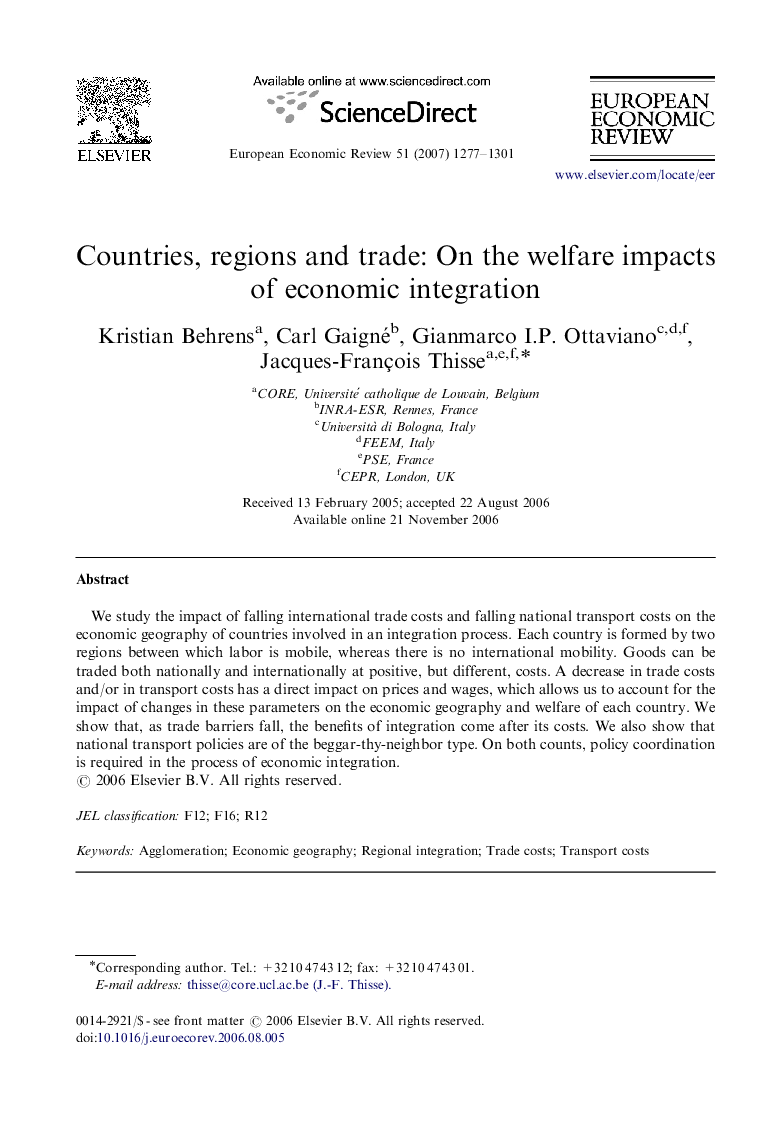| Article ID | Journal | Published Year | Pages | File Type |
|---|---|---|---|---|
| 5067352 | European Economic Review | 2007 | 25 Pages |
Abstract
We study the impact of falling international trade costs and falling national transport costs on the economic geography of countries involved in an integration process. Each country is formed by two regions between which labor is mobile, whereas there is no international mobility. Goods can be traded both nationally and internationally at positive, but different, costs. A decrease in trade costs and/or in transport costs has a direct impact on prices and wages, which allows us to account for the impact of changes in these parameters on the economic geography and welfare of each country. We show that, as trade barriers fall, the benefits of integration come after its costs. We also show that national transport policies are of the beggar-thy-neighbor type. On both counts, policy coordination is required in the process of economic integration.
Related Topics
Social Sciences and Humanities
Economics, Econometrics and Finance
Economics and Econometrics
Authors
Kristian Behrens, Carl Gaigné, Gianmarco I.P. Ottaviano, Jacques-François Thisse,
